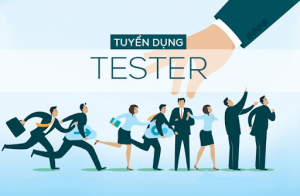Explore smart technology solutions that help businesses optimize processes, enhance efficiency, and effectively meet customer demands.

Why Smart Technology Solutions Are Essential?
In today’s modern business landscape, the adoption of smart technology solutions is crucial for companies to remain competitive and grow sustainably. These solutions not only optimize workflows but also enhance efficiency and improve customer experiences.
Benefits of Smart Technology Solutions
- Workflow Optimization One of the greatest benefits of smart technology solutions is the ability to optimize workflows. Technologies like Robotic Process Automation (RPA) and Artificial Intelligence (AI) can help businesses handle repetitive tasks quickly and accurately. This not only saves time but also minimizes errors, allowing employees to focus on more critical tasks.
- Increased Work Efficiency Smart technology solutions also boost the productivity of staff members. Project management tools, Customer Relationship Management (CRM) software, and data analytics solutions make it easier for employees to work effectively, thereby increasing overall productivity.
- Enhanced Customer Experience With smart technology solutions, businesses can provide better services to their customers. Automation systems improve response times and personalize customer experiences. This not only increases customer satisfaction but also enhances customer retention over the long term.
- Better Data Analysis Smart technology solutions enable businesses to collect and analyze data more effectively. With the assistance of AI and machine learning, companies can identify trends, measure performance, and make data-driven decisions. This helps in developing better business strategies.
Current Smart Technology Solutions in Use
1. Artificial Intelligence (AI)
AI has become a crucial part of smart technology solutions. Its applications are vast and diverse, impacting various areas of business:
Personalization: AI can analyze customer behavior to deliver personalized recommendations and marketing messages, enhancing the customer experience and driving sales.
Customer Service: AI-powered chatbots and virtual assistants can handle customer inquiries 24/7, providing instant responses and reducing wait times. This not only improves customer satisfaction but also frees human agents to focus on more complex issues.
Data Analysis: AI algorithms can analyze large datasets quickly, identifying patterns and trends that would be difficult for humans to detect. Businesses can leverage these insights for better decision-making, predicting market trends, and optimizing operations.
2. Internet of Things (IoT)
IoT connects smart devices and allows them to communicate with one another, creating a network of interconnected devices. The implementation of IoT in businesses offers several advantages:
Enhanced Customer Insights: IoT devices can gather data on customer usage patterns, allowing businesses to make informed decisions about product development and customer service.
Asset Monitoring: IoT devices can monitor equipment and assets in real-time, providing valuable data on their performance and condition. This helps businesses conduct predictive maintenance, reducing downtime and extending the lifespan of assets.
Improved Efficiency: By automating data collection and analysis, IoT solutions can optimize various operational processes. For example, smart sensors in manufacturing can adjust production schedules based on real-time data, improving efficiency and reducing waste.
3. Cloud Computing
Cloud computing solutions enable businesses to store and manage data on online platforms, providing flexibility and cost savings:
Cost Efficiency: By eliminating the need for extensive on-premises hardware and maintenance, cloud computing reduces upfront capital expenditures. Businesses pay only for the resources they use, making budgeting easier.
Scalability: Cloud services allow businesses to scale their IT resources up or down based on demand. This means companies can easily adjust their storage and computing power as their needs change, avoiding the costs of maintaining excess infrastructure.
Accessibility: With cloud computing, employees can access data and applications from anywhere, at any time, using any device. This enhances collaboration, especially for remote or distributed teams.
4. Robotic Process Automation (RPA)
RPA automates repetitive tasks that are typically rule-based and time-consuming. The benefits of implementing RPA in businesses include:
Employee Focus: With RPA handling routine tasks, employees can focus on higher-value activities such as strategy development, innovation, and customer engagement. This not only boosts morale but also enhances overall productivity.
Time Savings: RPA can perform tasks such as data entry, invoice processing, and report generation much faster than a human could, significantly reducing cycle times.
Cost Reduction: By automating mundane tasks, businesses can reduce labor costs and minimize the risk of human error, which can lead to costly mistakes.
Tinasoft: Your Smart Technology Partner
Tinasoft is a leading provider of smart technology solutions in Vietnam. With over 10 years of experience, we have partnered with numerous businesses to optimize processes and enhance work efficiency.
👉 If you are looking for a reliable partner to develop smart technology solutions for your projects, let Tinasoft provide free consultation. We will help you identify your needs and recommend the most suitable solutions.
📩 Contact Tinasoft today for detailed consultation and quotes!
🌐 Website: [Tinasoft]
📩 Fanpage: Tinasoft Vietnam













